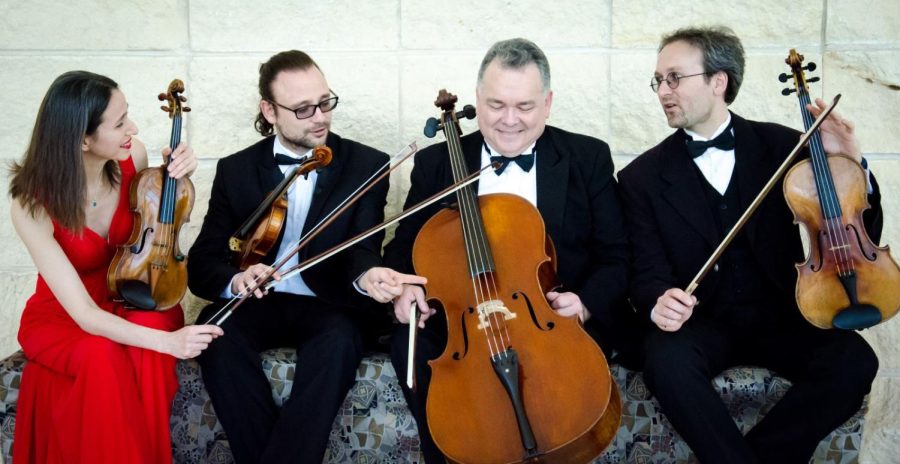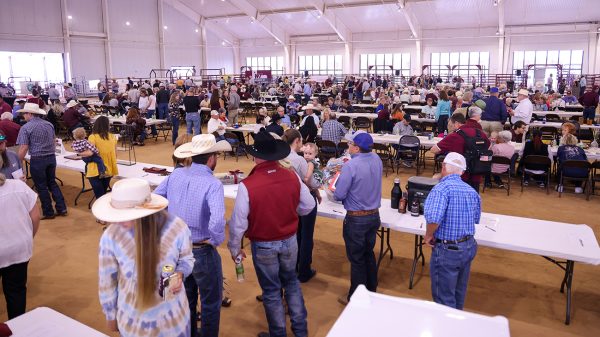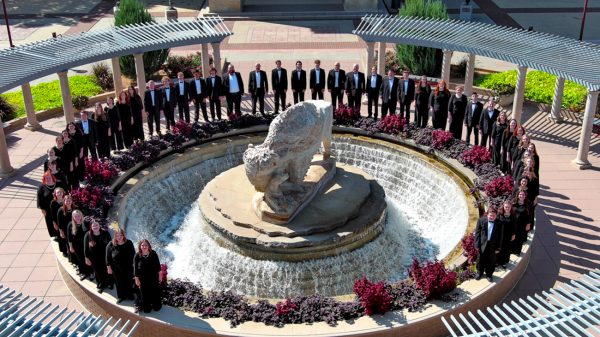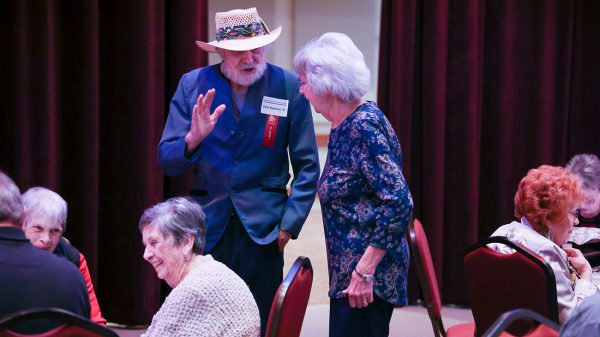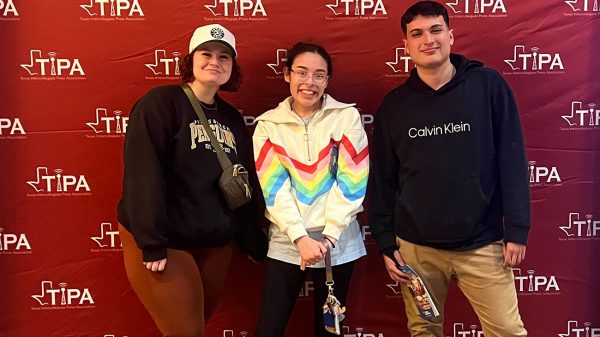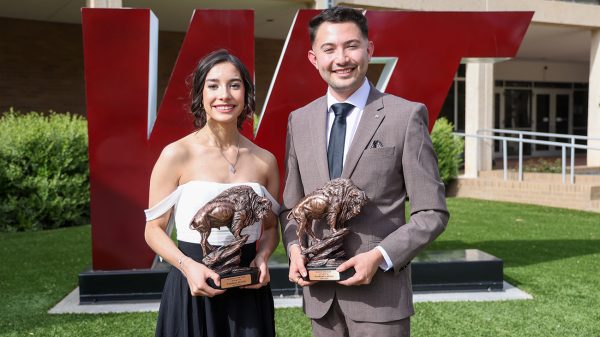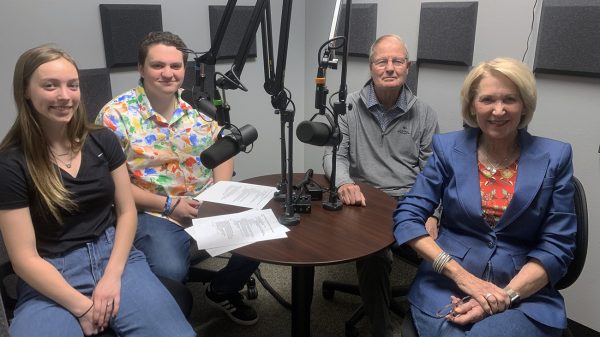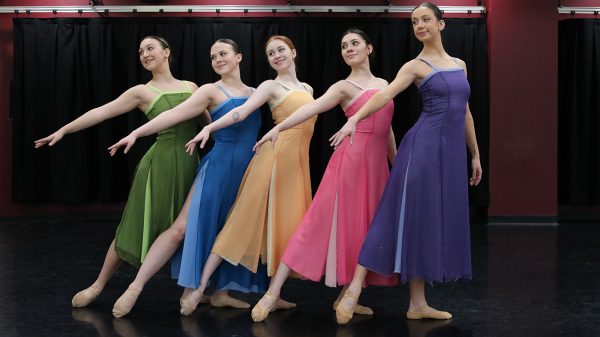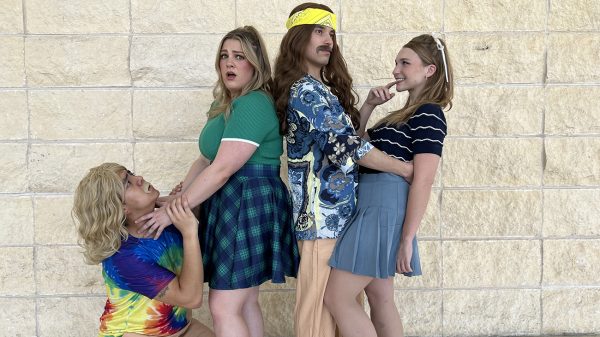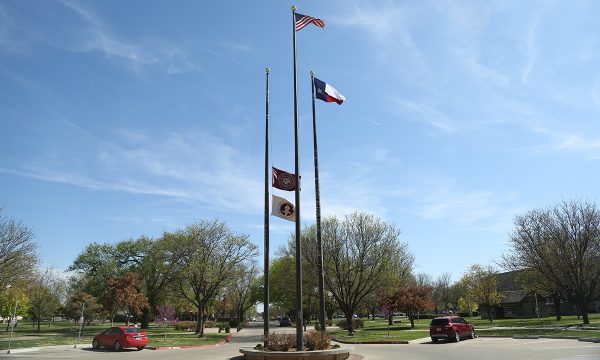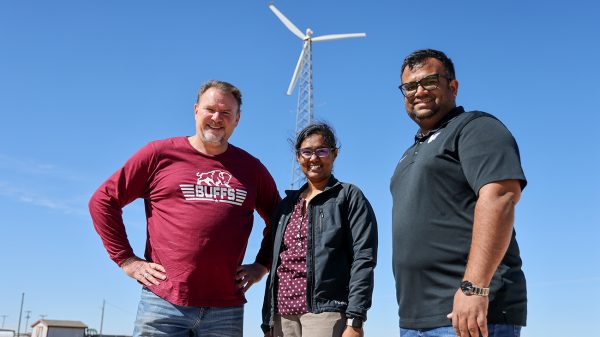HSQ to Start Season by Cracking Open Hidden Messages in Music
CANYON, Texas — Secret codes hidden in works by three major composers will be unlocked during a special Harrington String Quartet concert event.
All three concerts in HSQ’s “Synergy in G” season will tie in other disciplines taught at West Texas A&M University.
The “Musical Ciphers” program, which highlights the interplay between music and mathematics, will include a 7:30 p.m. Nov. 3 lecture in the Sybil B. Harrington Fine Arts Complex Recital Hall, followed by the quartet’s concert at 7:30 p.m. Nov. 4 in the Mary Moody Northen Recital Hall.
The concert will feature Dmitri Shostakovich’s String Quartet No. 6, Johann Sebastian Bach’s unfinished fugue from “The Art of Fugue,” and Johannes Brahms’ Sextet in G Major, Opus 36. Guest artists are Kimberly Sparr, viola, and Dennis Parker, cello.
Each piece includes a variation of a cipher developed by Julius Caesar; the emperor used it to encode messages to his generals, while the composers hid their names and those of others amid the notes in the composition, said Rossitza Jekova-Goza, first violinist and Harrington lecturer in violin in WT’s School of Music.
Bach’s cipher uses the notes B flat, A, C and B (called “H” in Bach’s native German) to spell out his name. Shostakovich hid D, E flat, C and B (again, “H” in German) to spell out “DSCH,” his initials in German — “Dmitri Schostakowitsch.” And Brahms hid the cipher “AGAHE” to refer to his former fiancée, Agathe von Siebold.
Dr. Pamela Lockwood-Cooke, associate dean of WT’s College of Engineering and the Clair Mayes Professor of Mathematics, will discuss the history of ciphers, how advances in cryptography affect everyday life, and how these composers used the Caesar Cipher to hide messages in their works.
“Cryptography was originally developed for military operations and that continued into the 20th century, but today we all encounter the advancements in this field each time we log onto our online banking system,” Lockwood-Cooke said. “In this lecture we will venture from the Romans to Edward Snowden to see how the same schemes used by these composers are still in use today.”
Single tickets are $20; season packages are $50 each. Buff Gold cardholders get one free ticket per concert. Tickets will be available at showtix4u.com, in the School of Music office or at the door. For information, call 806-651-2840.
The quartet also includes Evgeny Zvonnikov, violin; Vesselin Todorov, viola; and Emmanuel Lopez, cello. Each are lecturers in the School of Music, as well; Lopez also is a Periman Distinguished Artist.
HSQ was established by a generous gift from the late Sybil B. Harrington to benefit the Panhandle community. From its founding in 1981, the quartet has brought stellar credentials and a refined sense of ensemble and musical integrity to performances across the nation and internationally.
HSQ’s collaborative recording with the Phoenix Chorale, “Northern Lights,” was distinguished as iTunes’s Best Classical Vocal Album of 2012. In 2005, the quartet also released a Grammy-nominated album of works by American composer Daniel McCarthy on the Albany Records label.
Fostering an appreciation of the arts is a key component of the University’s long-range plan, WT 125: From the Panhandle to the World.
That plan is fueled by the historic, $125 million One West comprehensive fundraising campaign. To date, the five-year campaign — which publicly launched in September 2021 — has raised more than $110 million.



